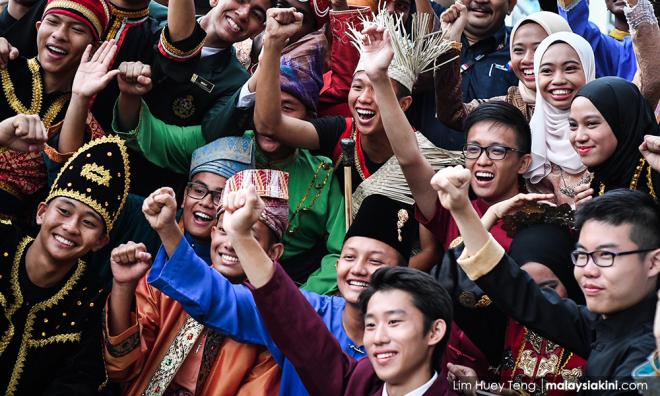
For 2020, I dare not hope for major reforms in our country. Why? Because, over the past year, the stench of racial politics has permeated Malaysia Baru, choking hopes of change.
Even though this year began with some good political news - Maszlee Malik resigning - what about the Master Manipulator who has been pulling the strings?
As long as this pillar of Malaysia Lama remains in power, I am not holding my breath for any big, real reforms, be it on the police (an IPCMC with real bite, rather than a toothless one), local council elections or tackling how rich tycoons fund (and thus “influence”) our political parties
So maybe it’s more realistic to focus on the smaller changes that won’t upset the durian cart of our main (racial and economic) power structures.
We’ve seen progress on Pakatan’s more modest promises like the RM100 public transport card, lowering the voting age to 18 and allowing local varsity students to enter politics
There has also been clear action on stuff like smoking at restaurants and child car safety seats.
What other smaller goals can be achieved? At the start of 2019, I was personally fascinated that the district council of Semporna, in eastern Sabah, took a step towards becoming like Singapore.
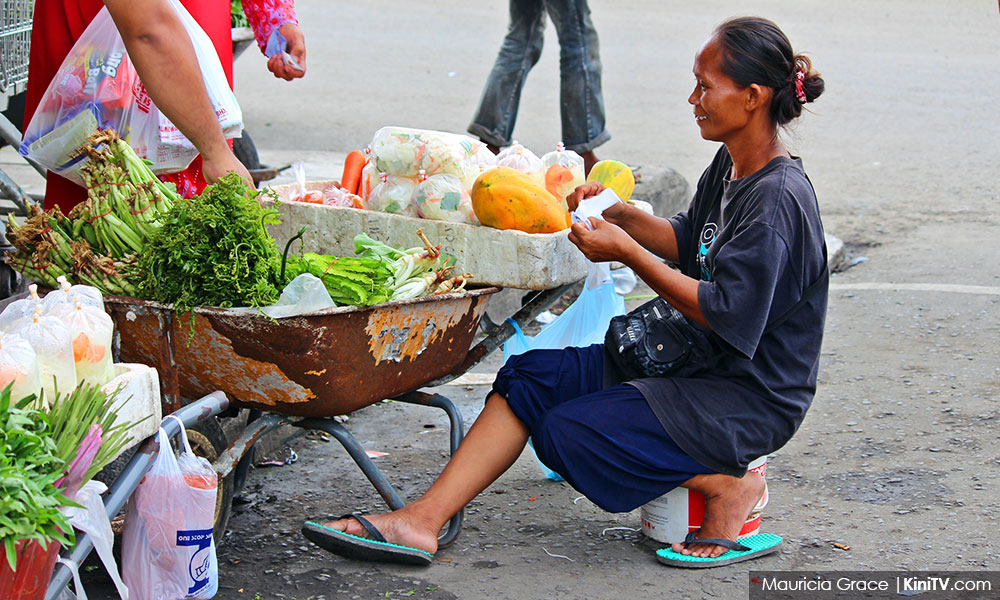
They announced that anybody caught littering would be slapped with an on-the-spot fine and, more amazingly, those who could not pay would have to collect street rubbish while wearing a vest with the word “monyet” (monkey) on it.
Cleanliness may seem like a minor thing, but its real value lies in creating an environment where bigger things, such as investment, can happen.
This is one way that Lee Kuan Yew transformed Singapore from a messy, colonial port city - by having plains clothes officers patrol the streets and impose spot fines for littering.
Another thing he did to attract richer foreigners (to invest and live there) was to insist on meticulous landscaping to create a Garden City.
Semporna is the gateway to the world-famous scuba diving islands of Mabul and Sipadan and in Jan 2019, a few dozen people there were fined, or did their “monkey duty”.
But after the initial heat of chicken droppings (hangat-hangat tahi ayam), little more was heard of this bold idea.
When I asked a Sabahan friend what had happened, he explained that “local leadership” had changed. Oh well, so much for trying to be like Singapore eh?
It’s too bad that Semporna did not become The-Little-Town-That-Could. It was also a missed opportunity for Chief Minister Shafie Apdal, to create a concrete example of a clean and disciplined New Sabah in his hometown.
I wish more towns would clean up.
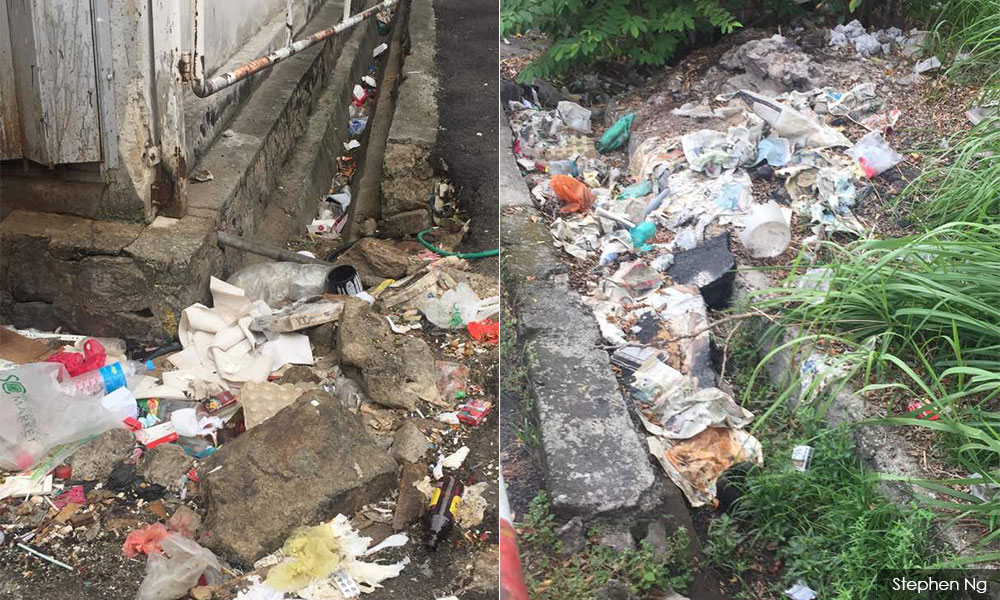
Living in Selangor, which has been controlled by a Pakatan state government since 2008, I am sad to see how much dirtier and rat-infested the back lanes of areas like SS2 Petaling Jaya are compared say to Ipoh (even during Barisan Nasional times).
The importance of small changes is set out in the Broken Windows theory of criminologists James Wilson and George Kelling, where, “crime is the inevitable result of disorder".
If a window is broken and left unrepaired, people walking by will conclude that no one cares and no one is in charge.
Soon more windows will be broken, and the sense of anarchy will spread, sending a signal that anything goes. In a city, relatively minor problems like graffiti, are all the equivalent of broken windows, invitations to more serious crime.”
Malcolm Gladwell, in his book The Tipping Point, explained how in the mid-1980s when the New York subway was notorious for violent crimes, the Broken Windows theory was proven -- the subway director tackled the graffiti problem and created a sea-change in the setting, resulting in a drastic drop of crimes.
So what other modest, easy to implement, reforms can the Pakatan government do? To give a sense that at least “some progress” is happening?
On the whole Jawi-khat-troversy, I see one simple solution that will please the non-Malays without any loss of ketuanan face for the Malays.
This is to add just one page of a fun introduction to Chinese characters, plus another one page for Tamil writing on top of the three blessed pages of Jawi (which is causing all the ruckus now).
For example, the Chinese lesson can show, via cartoons, how combining the pictographs for a child and a woman creates the character (ideograph) for the word “good”.
As for Tamil, perhaps students can learn that the word Melayu is derived from the word மலையூர் or malaiyūr, meaning “abode in the hills”.
I learnt in my Form 1 or 2 Sejarah (History) textbook (in the early 1980s) that this refers to Gunung Jerai, Kedah, which towers above the coast, and was a geographic marker for ships from India to Lembah Bujang, the first civilisation on the Malay peninsula.
Instead of stirring bitterness over the Seafield temple riots and death of fireman Muhammad Adib, why not show the historical links between Indian and Malay culture?
We can draw on, pardon the pun, how a joint celebration of Jawi-khat, Chinese and Tamil calligraphy was organised in early Dec by the Adun for Kuala Kubu Bharu, Selangor, Lee Kee Hiong.
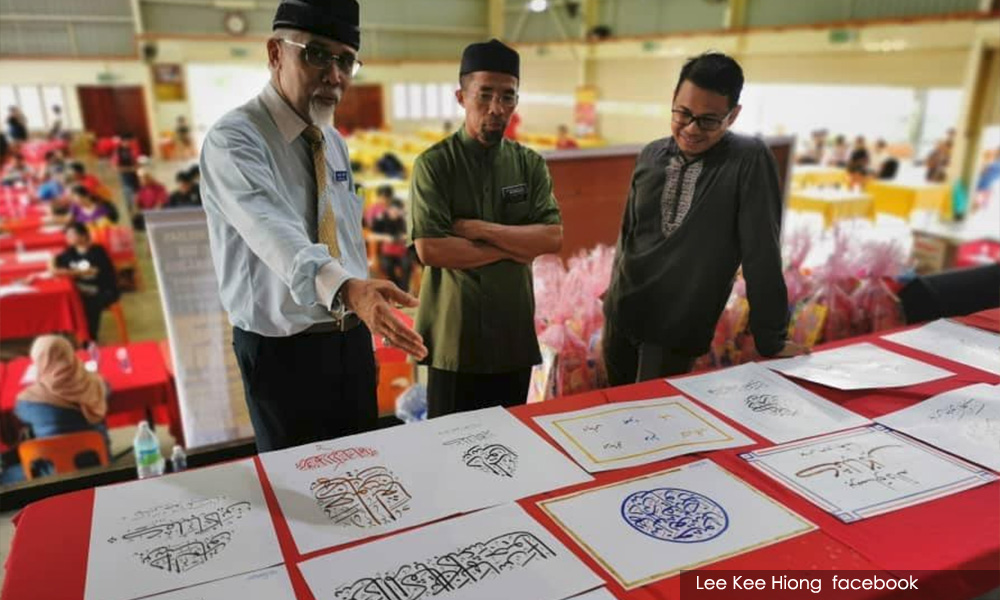
To further calm down the simmering racial rhetoric, I believe 2020 is the time to make some symbolic arrests (of say, two dozen people, among all races) of those who have made the most inflammatory comments on social media.
One example is the Facebook user called “Nadzmi Nadzmi” who, just before Merdeka 2019, falsely used an old photo of a fair-skinned Filipino protestor burning the Malaysian flag in Manila to accuse Malaysian Chinese of being traitors to the country.
This symbolic move will prove that the Pakatan government really wants to douse the sizzling racial frying pan.
Like the Broken Windows theory of crime, this will help create a more positive environment, where some real progress can happen. And I’ll bet people will soon be deleting their worst racist comments on Facebook, if only to avoid that policeman’s “knock on the door” (or “shout at the terrace house gate”).
The only reason I can think of why this won’t be done is that certain Malaysia Lama politicians, who are now wearing new clothes, delude themselves that they are frying some delicious political benefits in that sizzling oil (and have still not learnt after being burnt at the huge Tanjung Piai defeat).
At the same time, let’s showcase more positive inter-racial cooperation. I remember how DAP used to organise their Impian Sabah and Sarawak projects, helping remote villages set up gravity-fed piped water (from upstream parts of rivers) and micro-hydro electric schemes to power lights in longhouses.
They also had volunteer tuition teachers and doctors helping out rural folks. All this was done with very modest budgets.
Now that Pakatan is in power, surely this kind of Impian program can be scaled up, into a kind of “national service” or “peace corps” for adults.
Wouldn’t it be racially healing if mainly non-Malay city dwellers teach Malay kampung folks, say, English or computer classes?
In turn, the urbanites can learn about the six varieties of bananas in a village or the hard work of harvesting mengkuang leaves to weave mats.
I can also imagine new marketing channels developing so that villagers can sell fruits and kampung chickens directly to city folks.
We have such limited interaction with each other that ugly rumours and stereotypes build up easily.
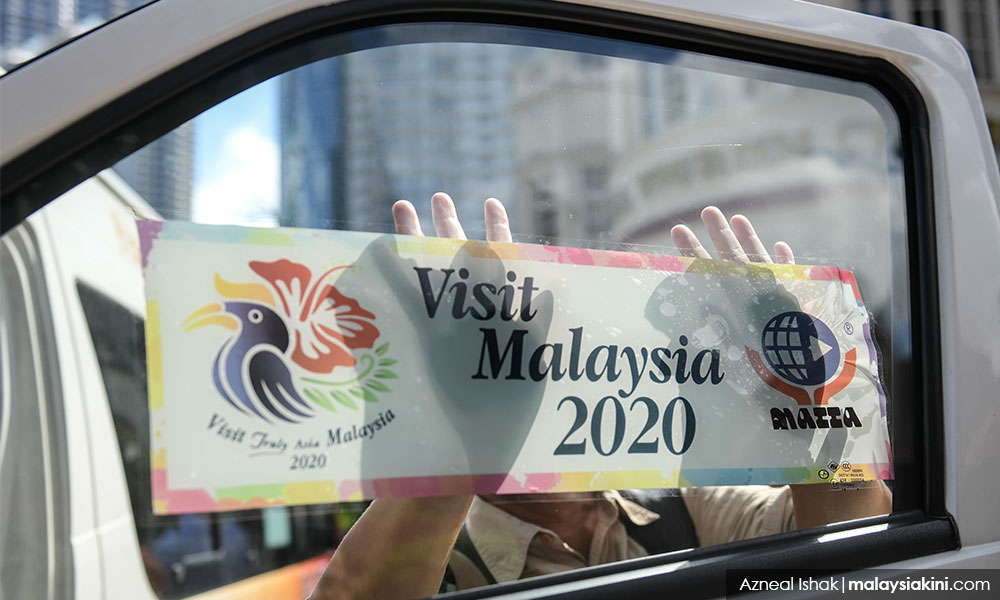
Perhaps this kind of “national service” will help us see the humanity in each other and build bridges across the racial divide? If nothing else, this can boost domestic tourism for Visit Malaysia Year 2020.
All these small steps can be like fixing broken windows, until the national mood changes from “aiya, gone case la, better migrate” to “hmmm, maybe we can do something”? As the Malay proverb goes, sedikit-sedikit lama-lama jadi bukit (bit by bit, it eventually becomes a hill).
So for 2020, while I dare not dream big, perhaps we can explore small, tentative steps to dilute the poisonous racial air and move gingerly towards a healthier Malaysia Baru.
That, I believe, is a Wawasan 2020 worth thinking about. - Mkini


No comments:
Post a Comment
Note: Only a member of this blog may post a comment.